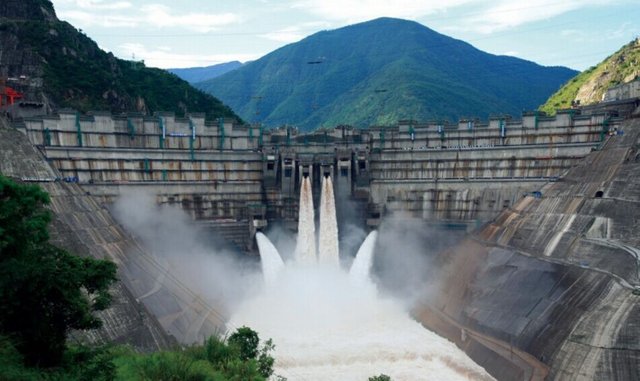Bitcoin, soldier of reason
Bitcoin has always struck me as a vector of reason over emotion. It is based in maths and cryptography, which nobody contests, but also in a deep sociological truth which is less widely admitted: "people respond to incentives".
Indeed, in their quest to better their lifes, people tend to organize in ways which utilize scarce resources more efficiently and lead to everyone being better off.
One such "scarce resource" is "usable energy", which we are able to harness and put to work to power human industry.
Not all energy falls into the "usable" category. Indeed, the energy used by all of humankind in a year is of the same order of magnitude as the energy which the Earth receives from the Sun over ONE HOUR.
However only a tiny fraction of that solar energy is currently usable in an economic way. One way in which a fraction becomes usable is through meteorological phenomena. All that solar heat makes water evaporate. Clouds travel from seas and oceans over land where they condense as rain, swelling rivers, some of which then power turbines. I am talking about "hydropower".
The quirk in the story of solar energy becoming "usable energy" by the road of "hydropower" is that energy storage capacity is rather constrained. Hydropower generation routinely uses dams which support accumulation of water in proportion with their height, but not more.
This leads to the technique of "curtailing", which means letting the river flow partly freely, without harnessing its full power to spin the turbines, when the accumulation lakes are full and the serviceable demand in electricity (given transmission limitations) is too low. You can see what curtailing looks like in the picture above, which illustrates the Xiaowan power plant in Yunnan province, China.
It is hard to find a benefit to curtailing: however you look at it, it appears as nothing more than wasted energy. All the negative externalities of hydropower (damaging the natural ecosystem of the river, uprooting local people, throttling the water volumes downstream, etc.) are already fully baked in at the construction of the power plant. Thus one might as well try to compensate for those drawbacks by maximizing the usable electric power rather than "curtailing".
As "The Economist" stresses out: "[China] has the capacity to produce more power than it needs. In 2018 this excess amounted to 70 terawatt-hours (Twh), equivalent to Switzerland’s total energy production. Rather than let the surplus go to waste, plants sold it to Bitcoin mining farms."
With the recent ban on Bitcoin mining, these are 70 Twh of energy which will simply go to waste. Compare this amount of wasted energy (from China hydropower sector) with the report that Bitcoin mining all over the world consumes about 110 TWh, only about 60% more than what China has now decided to waste.
Is such a decision reasonable?
It depends ... if, as the Chinese Communist Party, one wants to control its people through all means, then Bitcoin, soldier of freedom and "exit machine", is an enemy one must get rid off.
But for those who believe in "freedom", "liberté" or "Freiheit", regardless of its name, for those who believe in the power of human collaboration and inventivity to better the fates of us all, "using Bitcoin as an economic battery" is the reasonable thing to do, not "curtailing".
